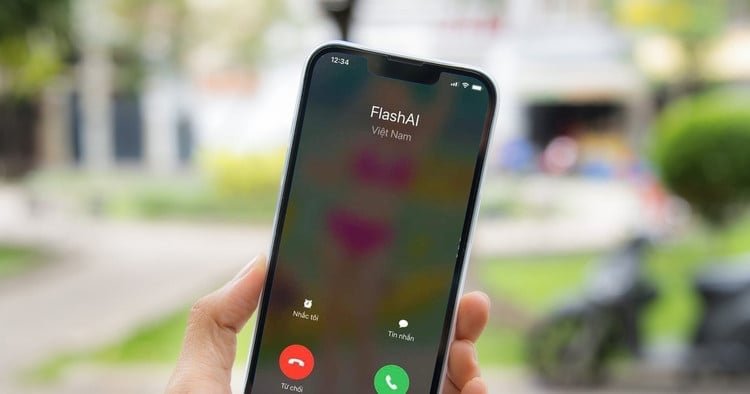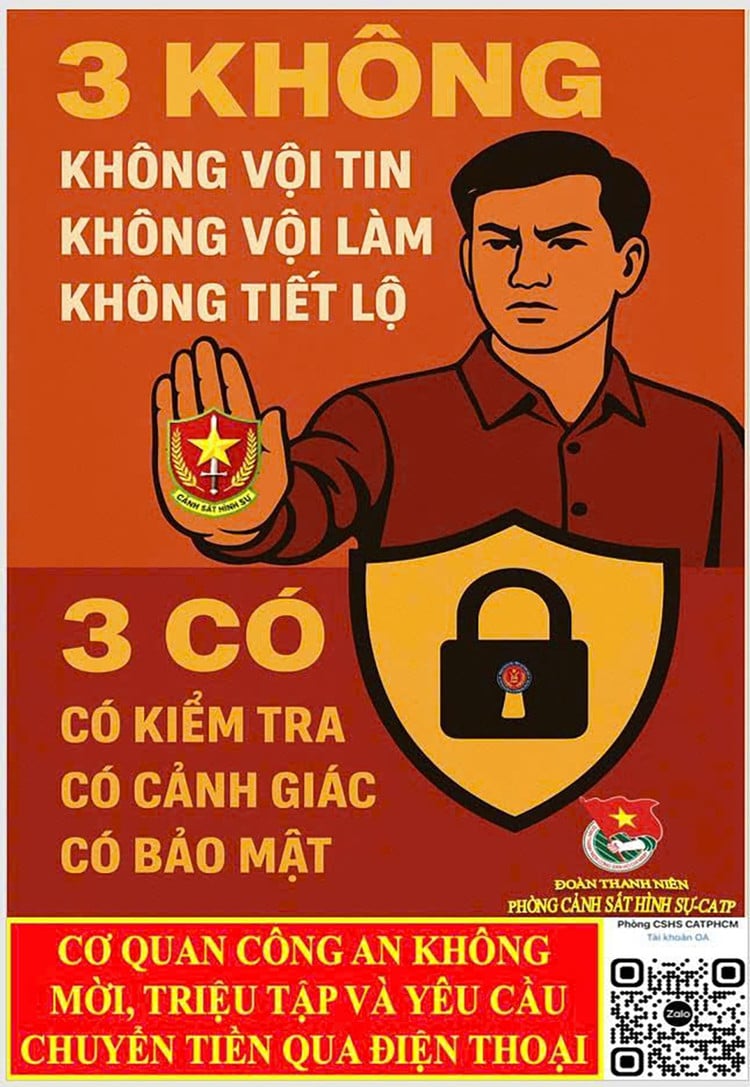The Ministry of Public Security as well as provincial and municipal police have continuously issued warnings about fraud schemes on cyberspace and telecommunications networks. However, fraud crimes are becoming increasingly sophisticated and complicated, and many people still fall into the trap.
Recently, the Criminal Police Department, Ho Chi Minh City Police Department has provided detailed instructions and propaganda for people to know about phone listening skills so as not to be led by the nose and scammed by the "other end of the line".
Fraudulent crimes via telecommunications networks and cyberspace are increasingly sophisticated and have many tricks. Illustrative photo
For students, the police pointed out situations that are easy to be scammed such as: Calling impersonating the police, banks, schools; threatening to be involved in drug cases, money laundering; luring into "virtual investigation rooms" (Zoom, Viber), requesting isolation, keeping secrets.
The police instruct on skills to remember including: Always stay calm, do not be afraid; do not provide OTP codes, accounts, or citizen identification cards; do not leave the dormitory or school because of threats over the phone; hang up and call back relatives, experienced people, or the ward police on duty; absolutely do not transfer money via phone requests.
For adults (aged 25-55), situations where people are easily deceived are: Impersonating banks, courts, People's Procuracy, investigation agencies, sending fake summonses, arrest warrants, fake violation lookup links; threatening to have their accounts locked, or temporarily detained if they do not cooperate.
Police recommend the following skills to remember to avoid being scammed: Do not click on links to look up violations or fines via Zalo/SMS; Do not verify "identity" over the phone; do not "cooperate in the investigation" without a legal summons; always verify again through official channels (call local police, regional police switchboard or bank).
For the elderly (over 55 years old), common scams include: Impersonating children (“children in an accident”, “arrested”, “urgent money transfer”); calling pretending to be from a government agency to demand a fine; threatening to cut off benefits and pension books if they do not provide an account.
Police recommend skills to remember: Do not transfer money without meeting your child/grandchild in person; always call relatives to verify; do not answer personal questions over the phone; tell relatives to set up a "safe contact list" - only listen to familiar numbers.
Golden rules to avoid being scammed
The Criminal Police Department has issued a general golden rule for all ages to avoid being a victim of fraud, specifically including:
One is, no trust - no fear - no money transfer.
Second, do not provide personal information - account - OTP.
Third, always verify from multiple sides before following.
Fourth, report to the nearest police station when there are suspicious signs.
The police continuously give out recommendations and golden rules for people to remember to avoid becoming victims of fraud. Photo: Ho Chi Minh City Police.
At the same time, the police also have important recommendations such as: Schools should organize extracurricular classes on skills to handle scam calls. Or, families should practice hypothetical scenarios, for example "If your child calls to borrow money, what will your grandparents do?" or install spam call blocking software, scam warning applications.
Readers are invited to watch the video "OctoV2 malware is more dangerous than ever"
Source: https://khoahocdoisong.vn/canh-sat-hinh-su-chi-cach-vo-hieu-hoa-lua-dao-qua-dien-thoai-post1546923.html


































































































Comment (0)